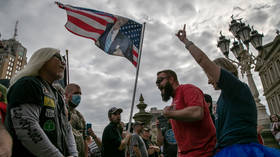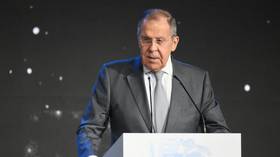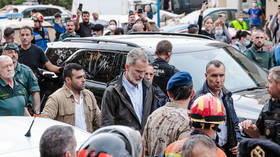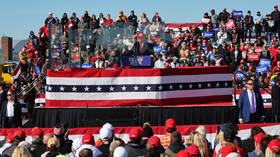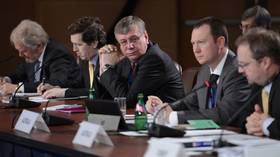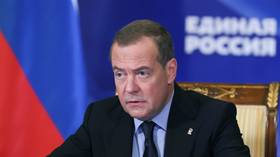Releasing state control of Orthodox Churches could lead to ruin
The Russian government is considering a bill which would return the ownership of all religious premises to the Russian Orthodox Church. If approved, the church could become the biggest property owner after the state.
Like many ancient monasteries across the country, a 17th century New Jerusalem Monastery in the town of Istra in the Moscow region is in desperate need of renovation. Volunteers near its entrance try to collect at least some money and call on passers-by to spare something for the church repairs.
The walls of the main church, the Church of the Resurrection of Christ, still bear the scars of World War Two. Repairing the New Jerusalem Monastery could take around a billion dollars, but that’s only a ballpark figure, says Father Feofilact, the head of New Jerusalem Monastery.
“When the Nazis left here in 1941, they blew up the church, some of it was restored, but a lot is still in ruins,” says Father Feofilact.
The church's dome is on the threat of collapse. The government pledged to help but as long as the monastery remains state property they can count on its support, says Father Feofilact.
There are around 500 orthodox monasteries in Russia, and over 16,000 parishes. Experts believe if the ownership of them all goes to the church, it could become the biggest property owner in Russia, after the state of course. More than one hundred places of worship across Russia have already been returned to the church.
Those who are against the move fear that the Church won't be able to manage it properly and keep the monasteries in good condition. Responding to those concerns, the Russian Orthodox Church says that it is fully capable of maintaining the property, if it becomes theirs.
“Basically, we are using these buildings, we are restoring these buildings. Most of them have been restored about ten years ago at the expense of the church communities. Nothing will actually change except the buildings which are in use will hopefully become church property once again,” says Vsevolod Chaplin, an archpriest from Moscow Patriarchate.
Russia’s Muslim and Jewish religious leaders say if they get ownership rights, they will rent out vacant premises to make money for their communities.
Some lawmakers like Vladimir Kashin fear that this could push the church into business activities, which they say is not what it should be about.
“The state just wants to pass on the expense it would have to go to, to maintain all the churches that are now in dire condition. But I'm sure the church won't be able to handle such a burden,” says Kashin.
Meanwhile, Father Feofilact says he approves of the new draft law in principle.
“In the future – yes, but for our monastery right now it's too early. No charity organization would be able to restore it without the state's helping hand,” says father Feofilact.
The new proposals will bring new responsibilities – but above all, they will mean that Russia's churches will once again belong to the church.


